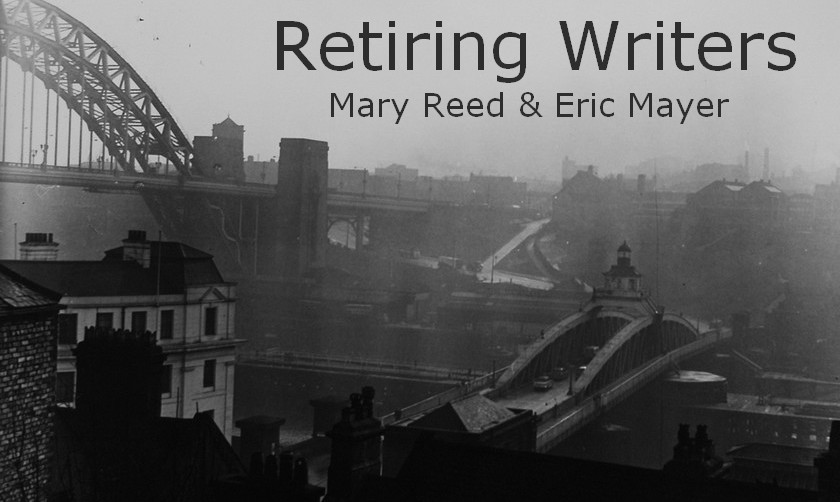I just finished reading The Secret Adversary and The Mysterious Mr Quin so I figured I might write something about their author, Agatha Christie. Unfortunately, whereas Mary has read pretty much all of Christie's works, I've read only a fair number. Then too, it's difficult to write about mysteries intelligently without giving too much away. Don't you hate it when the blurb on the back cover of a book recounts half the plot?
Nevertheless, I'm going to make a few random observations, the first of which is that I have never read a Christie I didn't like. For example, I've seen some bad reviews of The Third Girl but I found Poirot's excursion into the sixties counterculture rather entertaining. Some people seemed unhappy that Christie had abandoned the country estates and quaint English villages where she "belonged" but I've always been more attracted to her exquisite mystery puzzles and the interplay of her characters than her settings.
So not surprisingly I also enjoyed Death Comes as the End, the mystery set in decidedly not English ancient Egypt. No picturesque gardens, only sand. No stately mansions. Pyramids aren't really stately, are they?
This book highlights another characteristic of my Christie experience. Never once have I guessed the killer. You'd think I'd have done so simply by chance but Christie inevitably manages to point me towards the wrong suspect. I don't suppose I'm giving much away if I reveal that in Death Comes as the End the suspects are knocked off, one by one until the suspect list has dwindled to two. And even then I got it wrong!
You might gather from the above that I am not averse to less typical Christie mysteries. It's true. I even prefer the books that do not feature Miss Marple or Poirot. Indeed, reading about Hercule can be quite laborious.
It always annoys me when Christie's books are described as cozies. Her settings may not be gritty and she doesn't go in for graphic descriptions of violence but the motives and actions of her characters can be very black. I simply do not see much similarity between what she wrote and the sort of books marketed as cozies today. There was often a hard edge to Christie. A Crooked House, for instance, strikes me as downright noir. Christie listed it as one of her personal favorites.
In keeping with my taste for the atypical Christie I finally got around to reading The Secret Adversary. Childhood friends Tommy Beresford and Prudence "Tuppence" Cowley go into business as The Young Adventurers and are hired to find a British agent who vanished while trying to deliver a secret treaty. A secretive criminal mastermind, bent on fomenting labor unrest in the interest of Bolshevism, is also after the agent and the treaty. Tommy and Tuppence end up chasing and being chased all over England. There's plenty of humor and snappy dialogue. And though it's more a spy/thriller than a mystery Christie keeps the identity of the arch-criminal well concealed until the surprising (to me at least) conclusion.
The stories in The Mysterious Mr Quin are odder still. In each tale Harley Quin (not the comic book character) appears as if by magic and through conversation acts as a kind of catalyst, allowing the narrator, the mild mannered socialite Mr Satterthwaite, to solve a mystery. The Mr Quin character is based on Harlequin, as the stories make clear through clever descriptions. For example: "Mr Quin smiled, and a stained glass panel behind him invested him for just a moment in a motley garment of coloured light..." There's a definite aura of the supernatural. There are no physical clues in many of the stories. Rather, as Mr Satterthwaite gradually discovers the histories and relationships of the characters the solution becomes apparent. These reminded me a bit of Georges Simenon's books where Maigret figures out whodunnit by uncovering the secrets of the people involved.
So much for my reading of uncharacteristic Christie. I'm not familiar with the mainstream novels she wrote as Mary Westmacott. Maybe one of those should be next.
